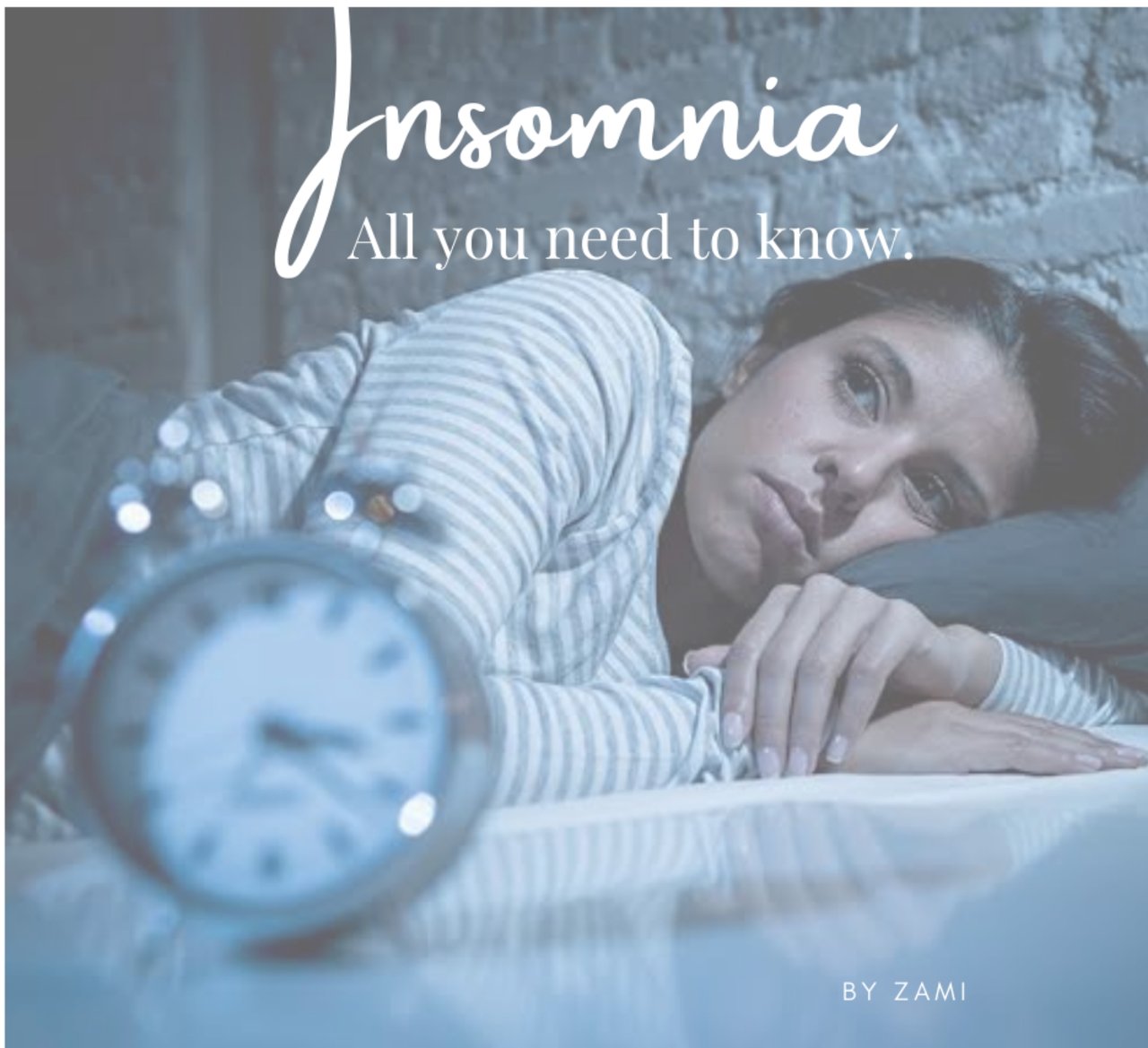Insomnia: All about it
4 comments

Hello everyone and welcome to my blog.
it's another day and another opportunity to discuss something vital as regards our health.
Last week, I wrote exhaustively on ulcerative colitis, its meaning, types, causes, diagnoses, and its management. If you didn't go through it, you can use this link.
Today, I'll be discussing something quite common, essential and imperative to know, especially as students. Its called insomnia.
Ever wondered why most elderly persons, especially those with diabetes find it difficult to sleep at night?, or why most persons with sedentary lifestyle find it difficult to remain asleep at night? Well, you should know by now what I'm driving at. This disorder has affected more than 1.5 million people in Nigeria and about 15% of the world population, its called insomnia. It affects both the young and the old.
What is insomnia?

Insomnia is sleep disorder characterised by inability to sleep especially at night, or inability to remain asleep for a considerable period of time. Its a common disorder experience by both the young and the old, though, more prevalent among the older population mainly due to other preexisting health condition.
Insomnia affects millions of people globally. Research has it that about 25% of people in the united states develop insomnia every year, out of which about 75% of that statistics recover without long term effect.
Long term insomnia is chronic and most times degenerate to what is called dementia(lost of memory), or other neurological disorders. Short term insomnia can cause fatigue and difficulty in contraction.
Types
There are basically two types of insomnia, primary and secondary insomnia.
Primary Insomnia:This type of insomnia is independent in occurrence, Its not associated or linked to any preexisting disease condition. It develop mainly due to noise and stress.
Secondary insomnia: This type of insomnia develops as a result of preexisting health condition like Asthma, diabetes, Arthritis, depression, chronic pain, excessive alcohol consumption, some medications etc.
Other types of insomnia known medically include,
Sleep onset Insomnia: This is when an individual finds it difficult getting into sleep.
Sleep maintenance insomnia: this is when the person has difficulty staying asleep in the night, or wakes up too early.
Mixed Insomnia: this type is combination of the first two, i.e, the individual has difficulty both in falling asleep, and staying asleep.
Causes
There are so many causes of insomnia, some of them are listed below
- Depression
- Medications(B-blockers, statins, glucosamine, chondrointin, anti allergies etc)
- Chronic pain
- Pregnancy
- Sleeping in noisy area
- Absence of physical exercise
- Jet lag
- Hyperthyroidism
- Excessive use of alcohol
- Restlessness
- Alzheimer disease
- Onset of menopause
Several treatment procedures has been outlined for insomnia, they include;
Dietary habits: avoid eating late at night, the Ideal time for dinner should be between 6 and 7 pm GMT. The meal for dinner should not be an heavy one, this is so, to ensure faster metabolism. Finally, avoid sleeping hungry, always have a healthy snack before bed.
Lifestyle: try taking a warm bath before bed, telephones and other electronic device should not be kept close to the bed, having a routine cycle of going to bed and waking at same time every day can also help in managing insomnia.
Medication: some medication like clomipramine, cognitive behaviour therapy(CBT), can help induce sleep. Hence, mitigating insomnia.
Over the counter pills should not be used for long term treatment of insomnia due to the side effects like lost of memory associated with.
For secondary insomnia, the underlying disease condition that gave rise to the insomnia should be treated first.
complications
When insomnia is left unattended to, it could result or degenerate to some chronic disorder like dementia and depression.
People with insomnia have greater risk of being obese. The human brain and the body in general needs periods of sleep, this is what helps it recuperate perform its functions optimally.
Conclusion
Insomnia is a very common medical disorder, its etiology can be traced to a wide range of factors like environmental factor, alcohol, preexisting disease condition, etc.
Always avoid self medication when you come down with this disorder, seek medical help. Self medication can exacerbate the situation and may possibly lead to onset of a chronic disorder.
Thanks for reading...
10% to @campusconnectng
Comments